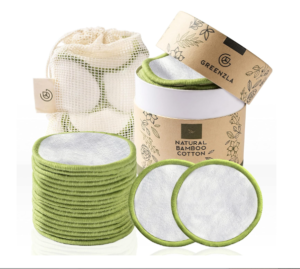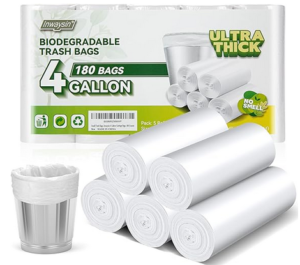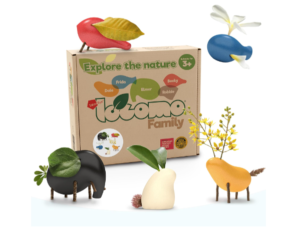Beautiful Plants For Your Interior

Tissue: Everyone love their face. We use facial tissues for cleaning our face. These tissues are mainly made from virgin wood pulp, chlorine and bleaching process. Chlorine and bleaching is very harmful for our skin and our nature too.
So we need to find out tissues like eco friendly tissue which made from 100% natural materials. These tissue does not harm our skin and our nature. After use, if we decompose these tissue, they can decompose in only few days leaving not any harmful substances. Here you will let know How Eco-Friendly Facial Tissues Save the Planet?
What is facial tissue?
Facial tissues are the tissues which also known as paper handkerchiefs. They are soft, absorbent disposable papers designed specifically for use on the face. They are a handy and sanitary alternative to cloth handkerchiefs, commonly used for blowing your nose, wiping tears, removing makeup and absorbing spills.
On the basis of their manufacturing materials, tissues are of two types chemical facial tissues and eco friendly tissues. Chemical tissues are made from wood pulp with chlorine and bleaching process.
Join our telegram channel https://t.me/naturesupprter
What is eco friendly facial tissue?
Eco friendly tissues are the alternatives of chemical tissues. They are made from recycled paper, bamboo, hemp, sugarcane bagasse and cotton linters. They have no negative impact on environment and also protects our skin.

Difference between regular and eco friendly tissue
Both tissues do same work but they are very different from each other. They are differ in their raw materials, production process, water and energy usage, packaging, lifespan, environmental impact, biodiversity and consumer impact.
Raw Materials
Regular Facial Tissue made from virgin wood pulp, which involves cutting down trees specifically for the production of tissue paper but Eco-Friendly Facial Tissue: Made from sustainable materials like recycled paper, bamboo, hemp, sugarcane bagasse, and cotton linters. These materials are renewable and have a lower environmental impact.
Production Process
Regular Facial Tissue involves chemical-intensive processes, including chlorine bleaching, which can release harmful chemicals into the environment. Eco-Friendly Facial Tissue uses environmentally friendly methods with minimal chemicals and chlorine-free bleaching processes. This reduces the release of harmful substances and overall pollution.
Water and energy usage
The production process of regular tissues consumes a significant amount of water. High energy consumption during manufacturing contributes to a larger carbon footprint. Eco friendly tissues are designed to minimize water usage, thereby conserving this vital resource.
Packaging
Regular tissues come in plastic packaging which contributes to plastic pollution but eco friendly tissues uses biodegradable or recyclable packaging materials, reducing waste and promoting a circular economy.

Lifespan
Regular tissues contributes significantly to landfill waste, as it is not biodegradable and often comes in non-recyclable packaging while Eco-Friendly Facial Tissues are designed to be biodegradable or compostable, meaning it breaks down naturally and reduces the amount of waste ending up in landfills.
Follow us on twitter https://twitter.com/ntspt24
Environmental Impact
The production and disposal of regular tissue contribute to deforestation, pollution, and a high carbon footprint, all of which have detrimental effects on the environment while Eco-Friendly Facial Tissue reduces deforestation, lowers pollution levels, and has a smaller carbon footprint, making it a more environmentally friendly option.
Consumer Impact
Using these regular tissues contributes to a higher environmental footprint and does not support sustainable living practices but choosing eco friendly tissues promotes sustainable living, as they have a lower environmental impact and support eco-friendly practices.

Biodiversity
Regular tissues causes deforestation for wood pulp leads to habitat destruction, negatively impacting wildlife and biodiversity but using eco friendly tissue helps preserve forests and natural habitats, supporting biodiversity.
| Aspect | Regular Facial Tissue | Eco-Friendly Facial Tissue |
|---|---|---|
| Raw Materials | Virgin wood pulp from trees | Recycled paper, bamboo, hemp, sugarcane bagasse, cotton linters |
| Production Process | Chemical-intensive, chlorine bleaching | Minimal chemicals, chlorine-free bleaching, eco-friendly methods |
| Water Usage | High water consumption | Reduced water consumption |
| Energy Usage | High energy consumption | Lower energy consumption |
| Packaging | Plastic packaging | Biodegradable or recyclable packaging |
| End of Life | Contributes to landfill waste | Biodegradable, compostable, minimal waste |
| Environmental Impact | Deforestation, pollution, high carbon footprint | Reduced deforestation, lower pollution, smaller carbon footprint |
| Biodiversity | Negative impact on wildlife habitats | Supports biodiversity by preserving forests and habitats |
| Consumer Impact | Higher environmental footprint | Promotes sustainable living, lower environmental footprint |
Gaias Facial Tissue
This facial tissue is not only cradles your skin in luxury but also nurtures our planet’s well-being. Gaia’s 100% Recycled Facial Tissue is redefine your tissue experience, placing sustainability at the forefront. This product is free from bleach dyes, and any adhesive between the layers, it’s an ideal choice for even the most sensitive skin.

This product not only meet stringent standards but also proudly hold certifications such as ISO 9001, ROHS, and FSC. Gaia takes pride in displaying the Climate Neutral and Pledge Friendly product labels, actively playing a role in creating a more environmentally friendly world.
Buy at Amazon https://www.amazon.com/dp/B0CJ7H3VRJ//?tag=naturesupport-20
| Attribute | Details |
|---|---|
| Color | White |
| Brand | GAIA’S |
| Special Feature | Non Lotion, Unscented, 100% Recycled Paper |
| Skin Type | Combination |
| Number of Items | 1 |
| Sheet Count | 1680 |
| Number Of Pieces | 3360 |
| Material Type | Recycled |
| Customer Reviews | 4.5 out of 5 stars |
| Absorbency | 4.2 out of 5 stars |
| Value For Money | 3.8 out of 5 stars |
Conclusion
This product is not only good for our skin but also beneficial for our planet, nature and environment. These tissues are made from sustainable materials like recycled paper, bamboo, hemp, sugarcane bagasse, and cotton linters. These materials are renewable and have a lower environmental impact. This product is certified with SO 9001, ROHS, and FSC. if you like this blog, please let us know through your valuable comments. Thankyou!
Our more blogs in this category is here https://naturesupporter.com/blog/



